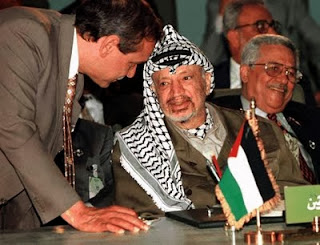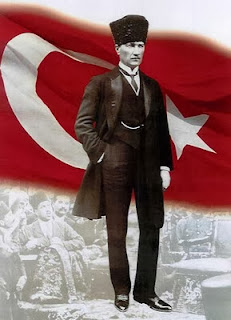Sunday, November 24, 2013
Muhammad Ali Boxer
Muhammad Ali (born Cassius Marcellus Clay Jr.; January 17, 1942) is an American retired boxer and three-time World Heavyweight Champion, who is widely considered to be one of the best heavyweight boxing champions ever. As an amateur, he won a gold medal in the light heavyweight division at the 1960 Summer Olympics in Rome. After turning professional, he went on to become the first boxer to win the lineal heavyweight championship three times. In 1999, Ali was crowned "Sportsman of the Century" by Sports Illustrated and "Sports Personality of the Century". Well known for his fighting style, which he described as "float like a butterfly, sting like a bee". Ali was involved in several historic boxing matches. Notable among these are three with rival Joe Frazier and one with George Foreman, whom he beat by knockout to win the world heavyweight title for the second time.
He has only 5 losses (4 decisions and 1 TKO by retirement from the bout) and 0 draws in his career, while amassing 56 Wins (37 knockouts and 19 decisions)
Originally known as Cassius Clay, Ali changed his name after joining the Nation of Islam in 1964, subsequently converting to orthodox Islam in 1975. In 1967, Ali refused to be inducted into the U.S. military based on his religious beliefs and opposition to the war in Vietnam. He was arrested and found guilty on draft evasion charges, stripped of his boxing title, and his boxing license was suspended. He was not imprisoned but did not fight again for nearly four years while his appeal worked its way up to the U.S. Supreme Court, where it was successful.
Michael Jackson
Michael Jackson, one of the most widely beloved entertainers and profoundly influential artists of all-time, leaves an indelible imprint on popular music and culture.
Five of Jackson's solo albums - "Off the Wall," "Thriller," "Bad," "Dangerous" and "HIStory," all with Epic Records - are among the top-sellers of all time and “Thriller” holds the distinction as the largest selling album worldwide in the history of the recording industry with more than 70 million units sold. Additionally, singles released from the Thriller album sold more than 100 million copies worldwide, another all time record.
During his extraordinary career, he sold an estimated 750 million records worldwide, released 13 No.1 singles and became one of a handful of artists to be inducted twice into the Rock and Roll Hall of Fame. The Guinness Book of World Records recognized Jackson as the Most Successful Entertainer of All Time and "Thriller" as the Biggest Selling Album of All Time. Jackson won 13 Grammy Awards and received the American Music Award's Artist of the Century Award.
Michael Jackson started in the music business at the age of 11 with his brothers as a member of the Jackson 5. In the early 1980s, he defined the art form of music video with such ground-breaking videos as "Billie Jean," "Beat It" and the epic "Thriller." Jackson's sound, style and dance moves inspired subsequent generations of pop, soul, R&B and hip-hop artists.
Yasir Arafat
Yasir Arafat stands as one of the most resilient, recognizable and controversial political figures of modern times. The object of unrelenting suspicion, steady admiration and endless speculation, Arafat has occupied the center stage of Middle East politics for almost four decades. Yasir Arafat is the most comprehensive political biography of this remarkable man.Forged in a tumultuous era of competing traditionalism, radicalism, Arab nationalism, and Islamist forces, the Palestinian movement was almost entirely Arafat's creation, and he became its leader at an early age. Arafat took it through a dizzying series of crises and defeats, often of his own making, yet also ensured that it survived, grew, and gained influence. Disavowing terrorism repeatedly, he also practiced it constantly. Arafat's elusive behavior ensured that radical regimes saw in him a comrade in arms, while moderates backed him as a potential partner in peace.
After years of devotion to armed struggle, Arafat made a dramatic agreement with Israel that let him return to his claimed homeland and transformed him into a legitimized ruler. Yet at the moment of decision at the Camp David summit and afterward, when he could have achieved peace and a Palestinian state, he sacrificed the prize he had supposedly sought for the struggle he could not live without.Richly populated with the main events and dominant leaders of the Middle East, this detailed and analytical account by Barry Rubin and Judith Colp Rubin follows Arafat as he moves to Kuwait, Syria, Jordan, Lebanon, Tunisia, and finally to Palestinian-ruled soil. It shows him as he rewrites his origins, experiments with guerrilla war, develops a doctrine of terrorism, fights endless diplomatic battles, and builds a movement, constantly juggling states, factions, and world leaders.Whole generations and a half-dozen U.S. presidents have come and gone over the long course of Arafat's career. But Arafat has outlasted them all, spanning entire eras, with three constants always present: he has always survived, he has constantly seemed imperiled, and he has never achieved his goals. While there has been no substitute for Arafat, the authors conclude, Arafat has been no substitute for a leader who could make peace.
Nelson Rolihlahla Mandela
Nelson Rolihlahla Mandela was born in Transkei, South Africa on July 18, 1918. His father was Chief Henry Mandela of the Tembu Tribe. Mandela himself was educated at University College of Fort Hare and the University of Witwatersrand and qualified in law in 1942. He joined the African National Congress in 1944 and was engaged in resistance against the ruling National Party's apartheid policies after 1948. He went on trial for treason in 1956-1961 and was acquitted in 1961.After the banning of the ANC in 1960, Nelson Mandela argued for the setting up of a military wing within the ANC. In June 1961, the ANC executive considered his proposal on the use of violent tactics and agreed that those members who wished to involve themselves in Mandela's campaign would not be stopped from doing so by the ANC. This led to the formation of Umkhonto we Sizwe.
Mandela was arrested in 1962 and sentenced to five years' imprisonment with hard labour. In 1963, when many fellow leaders of the ANC and the Umkhonto we Sizwe were arrested, Mandela was brought to stand trial with them for plotting to overthrow the government by violence. His statement from the dock received considerable international publicity. On June 12, 1964, eight of the accused, including Mandela, were sentenced to life imprisonment. From 1964 to 1982, he was incarcerated at Robben Island Prison, off Cape Town; thereafter, he was at Pollsmoor Prison, nearby on the mainland.During his years in prison, Nelson Mandela's reputation grew steadily. He was widely accepted as the most significant black leader in South Africa and became a potent symbol of resistance as the anti-apartheid movement gathered strength. He consistently refused to compromise his political position to obtain his freedom.Nelson Mandela was released on February 11, 1990. After his release, he plunged himself wholeheartedly into his life's work, striving to attain the goals he and others had set out almost four decades earlier. In 1991, at the first national conference of the ANC held inside South Africa after the organization had been banned in 1960, Mandela was elected President of the ANC while his lifelong friend and colleague, Oliver Tambo, became the organisation's National Chairperson.
Ayatollah Ruhollah Khomeini
Ayatollah Seyyed Ruhollah Khomeini had a profound impact on specifically the Middle East, but also the whole world. His vicious hate of the West, especially America, heightened tensions between Muslims around the world and America, paving the way for terrorist bodies such as al-Qaeda. As an Iranian Shia cleric, Khomeini was the political and spiritual leader of the 1979 Iranian Revolution that overthrew Mohammad Reza Pahlavi, then the Shah of Iran. Khomeini ruled Iran from 1979 until his death in 1989. Unfortunately, the widespread effect Khomeini had on the Middle East can hardly be considered advantageous. Khomeini’s call for Islamic revolution all over the Middle East led to a war between Iraq and Iran. Khomeini’s strict Shia Islamic law made women inferior beings, and opposition to this law was greeted with harsh punishments ranging from imprisonment to torture to execution. Khomeini planted the seeds for the Islamic jihad that are still breeding war today.
In an attempt to correct things, the Shah tripled taxes on salaried workers, and imposed fines on thousands of shopkeepers. Thousands of Iranians began to protests the taxes, poor living conditions, and misuse of money by their government. For the first few years, various clusters such as industrial workers, bazaaris (shopkeepers), slum dwellers, Shia clergy, and more were divided, each seeking their own interests. Khomeini organized this newly formed revolution from his exile in Paris. In February 1978 radical young soldiers in the Iranian Air Force joined the revolution. It was not long before the Shah was overthrown, and Khomeini was leader of Iran. Under Khomeini's leadership, Iran became a pure Shia theocracy in just a little over two years.
Suffering from cancer, Khomeini died in 1989.
Mustafa Kemal Pasha
Mustafa Kemal Pasha (1881-1938), also referred to as Kemal Ataturk ('Father of the Turks') served in field commands during World War One and subsequently became Turkey's first president. Regarded as a potential rival by Enver Pasha, the most prominent figure in the country's Young Turk administration, Kemal was packed off to Bulgaria as Turkish military attaché and remained there when European war broke out in August 1914. With the Ottoman Empire's entry into the war in November 1914 Kemal was given command of the 19th Division based at Gallipoli. His fanatical determination to throw back the Allied invasion there and at Suvla Bay in 1915 manifested itself in repeated attacks, often at great cost. His defiant stand sparked admiration and transformed him into a popular figure at home.
After successfully leading a guerrilla campaign against the Greek army's attempt to occupy Smyrna Kemal deposed Sultan Mehmed VI (abolishing the sultanate and in 1924 the caliphate) and became Turkey's first president in 1924, serving until 1938. As president (and effective dictator) Kemal radically transformed Turkish society, politics and law; its citizens adopted Western standards of dress, the Latin alphabet, secularism and industry.
Awarded the title 'Ataturk' - 'Father of the Turks' - by the National Assembly in 1934 Kemal died on 10 November 1938 in Istanbul the most significant figure of his generation.
Subscribe to:
Posts (Atom)





